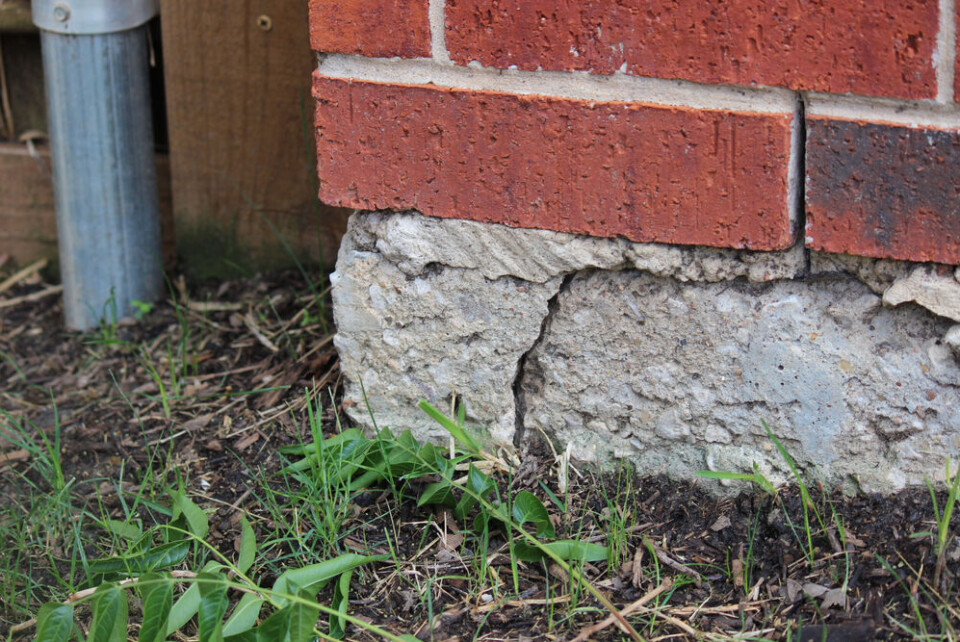-
Why storms in France have indirectly caused carbon monoxide poisoning
We cover tips and rules for detectors
-
Can you offer rentals in France when staying on visitor visa?
There are different thresholds for rentals before they are deemed as ‘professional income’
-
Must all properties in France have a ‘smart’ thermostat?
Modern thermostats can automatically set temperatures even when residents are away
Moves to improve compensation for drought damage in homes in France
New rules are set to boost compensation by 15% for properties that are damaged slowly and gradually by repeated ‘natural disaster’ droughts

Compensation for homeowners whose properties become damaged due to drought could rise by 15%, as the government plans the change as part of the recognition of the ‘natural disaster’ status.
In 2022, the severe drought conditions were connected to property damage claims of €2.5billion, show figures from professional insurance federation, France Assureurs.
Read more: 60 French departments have ‘crisis’ drought alerts as heat continues
Almost half of the 10.4 million buildings of individual homes in France are built on chalky ground. This puts them at medium or high risk of damage caused by a phenomenon dubbed the ‘shrinkage and swelling of clay’ (‘retrait-gonflement des argiles’ (RGA)), according to data from the Bureau de recherches géologiques et minières (BRGM).
The soil contracts during a time of drought, and expands when wet after rain. This eventually causes damage to properties that are not properly designed to handle the changes. Cracks and other foundational issues can appear with each drought.
The problem has now caused the government to issue a new instruction, published on February 9 in the Journal Officiel, which is set to increase compensation to communes that are victims of drought, as part of the official ‘catastrophe naturelle’ (natural disaster) status. It is also known as ‘Cat Nat’.
Read more: France’s ‘catastrophe naturelle’ insurance system: how to claim
This status can only be granted by the government following a given natural incident (such as storm or flooding damage). It unlocks specific clauses in insurance policies so that holders can access extra compensation for damage caused.
The new rules will come into force in policies from this summer onwards. They will aim to take into account the slow and gradual character of the damage.
In a statement on January 8, the government said: “In addition to the current recognition criteria based on the intensity of a drought measured over a given period, a new mechanism…will also allow for the recognition of Cat Nat for municipalities that have suffered an abnormal succession of droughts of significant magnitude, but whose intensity measured year by year does not meet the current criteria.”
This means that even if a single drought one year is not enough to be recognised, the damage caused by continued and successive droughts will be.
The law will also provide a mechanism to recognise communes ‘adjacent’ to those worst affected, to overcome the current problem in which a property in one area may receive compensation, and one in another area does not, even if, in reality, they are just metres apart.
The criteria to recognise a state of natural disaster in the context of droughts will also be relaxed.
The law will also contain more conditions: for example, people who receive compensation for damage caused by a catastrophe naturelle will be obliged to use the compensation they receive to carry out lasting repairs to their home.
Compensation claims for damage that affects the integrity or safety of the building will also be prioritised, to avoid compensation claims being paid purely for aesthetic damage.
In a press release, France Assureurs said: "This provision will broaden the scope of insurance intervention for cases of natural disaster victims who, under the current law, would not otherwise benefit from the natural events compensation system.”
The new rules are likely to be welcomed by homeowners whose properties were damaged last year during the unprecedented drought.
This year is looking set to be no different, after experts said that exceptionally low rainfall so far, and predicted warm weather for March, could lead to very low groundwater levels for the spring and summer ahead.
Related articles
Drought in France: 2023 set to be ‘very dry year’ and it starts now
Water restrictions imposed in southeast France due to drought alert
























